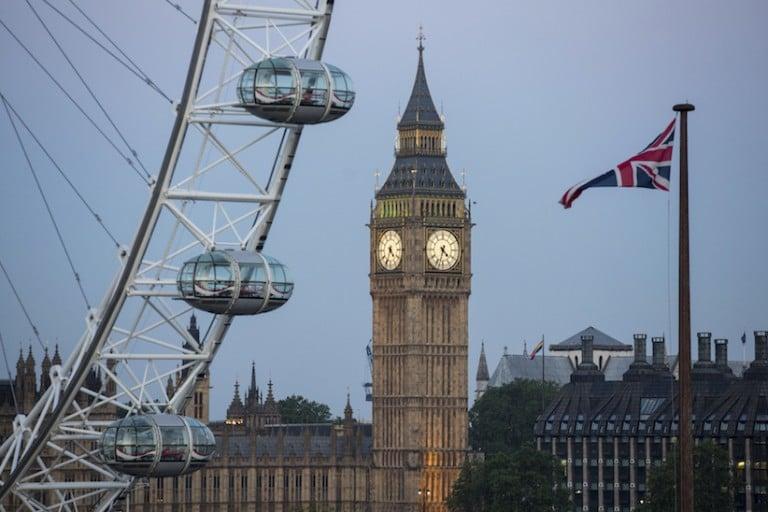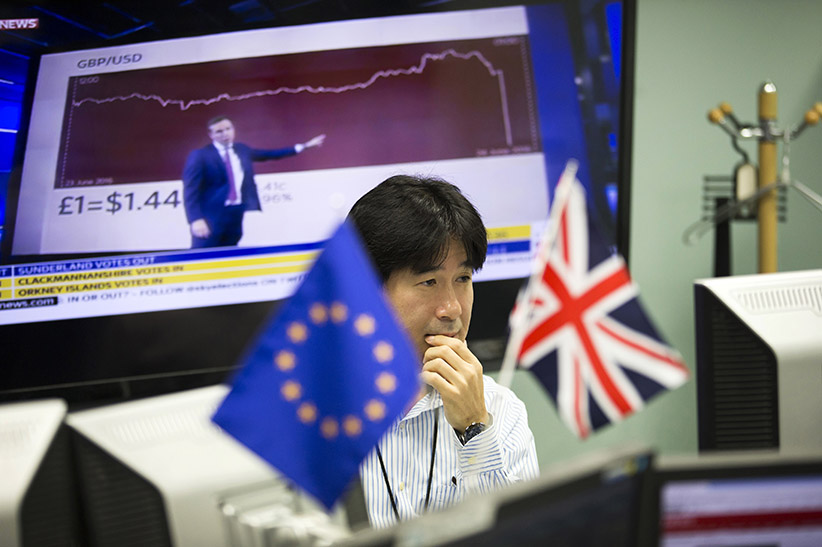So how exactly does Britain break up with the EU, anyway?
Achim Hurrelmann, a leading EU expert, previews the tough divorce talks ahead

The Houses of Parliament seen from the Royal Festival Hall, in London, Britain June 24, 2016. REUTERS/Rob Stothard/Pool – RTX2HWGB
Share

At universities and think tanks all over, specialists on the European Union’s arcane inner workings and massive economic clout woke up this morning to find they were being asked to explain something few of them had actually predicted. Political science professor Achim Hurrelmann, a leading EU expert at Carleton University in Ottawa, admits Brexit surprised him, but says the populist discontent underlying the vote is far from a new factor in Europe. In this edited interview, Hurrelman talks about what happened and what happens next:
Q: Did you think there was much chance the Leave side might win?
A: I had been a little bit concerned, but the last opinion polls consoled me. I went into the evening thinking like most people that it would be a win for the Remain side.
Q: So are those of you who study the European Union now scrambling to figure out something entirely unexpected?
A: Some of what we are looking at is not a surprise at all, and that is that there is a big potential for populist mobilization against the EU. It’s particularly people who perceive themselves as losers in globalization—people who are working class, poorly educated, don’t live in metropolitan centres, older people. Those are the demographics who have voted for the Brexit. That is totally in line with previous referendums on EU issues, which have, however, not been on such fundamental questions as staying in or leaving.
Q: Which referendums are you thinking of?
A: For instance, Norway has actually had two referendums on joining the EU, and both went negatively. Of course, there were referendums on the attempt to establish an EU constitution in 2005, which was voted down in France and the Netherlands, and after that abandoned. It’s not new that there’s a referendum in which an EU-related proposal is rebuked by the people. What’s new is the fundamental scale—to actually leave the EU.
Q: So the referendum dynamic wasn’t unprecedented, but the aftermath will be.
A: This whole process of withdrawing, this has never been tried. Article 50 of the Treaty on European Union sets the broad framework. It says a member has to give notice to the European Council. There’s a period of two years for negotiation of the terms of divorce, if you will. Establishing some sort of association would be the goal, so a country that has been a member state isn’t back to the status of a country with no special relationship with the EU.
Q: Isn’t there an obvious disincentive for the remaining EU members to negotiate favourable terms? They won’t want other members to imagine than can leave and still keep the main benefits of staying.
A: That is very obvious. The remaining states do not want to set a precedent. They want to get across the message that it does not pay to withdraw. That will be their negotiating position; the French government has been clearest in indicating that.
Q: What do you think Britain is bound to lose? What will they not be able to negotiate?
A: I would expect the EU to negotiate based on an all-or-nothing provision. The most close form of association for a non-member state would be membership in the European Economic Area. That is what Norway, for instance, is a member of. It essentially means you are a member in everything but name. So they have to accept EU regulations, they have to accept freedom of mobility with the EU, they even pay into the EU budget, but they don’t have a say when decisions are made.
Q: That seems like a very poor deal.
A: It is a very poor deal. But some countries, such as Norway, have opted for that because access to the EU market is so important to them, and those are the conditions the EU puts on access. I expect they will try to impose similar conditions on Britain. My expectation is the EU will say, ‘Either you accept this EU area proposal, or we will deal with you like any other country and you will have to trade with us under the general rules of the World Trade Organization.’
Q: How will this success for right-wing populists in Britain be seen by similar groups in continental Europe?
A: The idea of holding referendums to withdraw from the European Union, that will certainly have some contagion. We’ve already heard Marine Le Pen [leader of France’s far-right National Front] in France and Geert Wilders [leader of anti-EU Party for Freedom in the Netherlands] proposing that their countries hold similar referendums to Brexit. However, these parties are not in government, so it’s not to be expected that the governments in those countries will give in. The governments in the EU member states will really try to avoid this.
Q: Elites must be taking the lesson that referendums are dangerous and can unleash populist sentiment in unpredictable ways.
A: Especially when the topic is deeply emotional and, at the same time, vaguely defined. People don’t know very much about the European Union. That is precisely the recipe for a populist outcome. And many people saw that and warned Prime Minister David Cameron against having one. But he has tried this strategy successfully twice before—first on electoral reform and second on Scotland. So maybe he became a little overconfident about his ability to make referendums swing his way, even though it’s pretty clear that there’s a danger here for populism.
Q: You’re originally from Germany. As a European, how are you feeling today?
A: To me, it’s a somewhat sad day, but it’s not that the sky is falling. It’s clear the United Kingdom was always a somewhat reluctant partner in European integration and therefore it doesn’t come as a complete surprise. It will really make progress on European integration more difficult in the short term, because they will be focused on these withdrawal negotiations. But I don’t think it signals the end of the European Union, and it might actually strengthen the resolve of the remaining members to fix the weaknesses of the project.
[widgets_on_pages id=”BREXIT”]